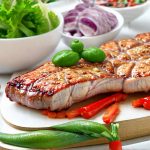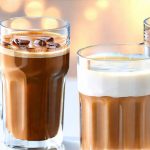Hydration isn’t simply about drinking eight glasses of water a day; it’s a nuanced element of overall well-being intrinsically linked to what we eat. Many people overlook the powerful synergy between food and beverage choices, often focusing on standalone hydration strategies. However, thoughtfully pairing your drinks with home-cooked meals can significantly enhance both flavor profiles and nutritional benefits. This approach moves beyond basic thirst quenching to actively support digestion, nutrient absorption, and even the enjoyment of your meal itself. It’s about understanding how different foods interact with various fluids – from still and sparkling water to herbal teas and naturally flavored infusions – creating a holistic culinary experience.
The concept isn’t about restricting choices or adhering to rigid rules. Instead, it’s about becoming more mindful of what you drink with your food, recognizing that certain pairings can amplify the positive aspects of both. For example, pairing a light, citrus-infused water with fish highlights its delicate flavors while assisting digestion. Conversely, a robust red wine (consumed responsibly, of course) complements a hearty beef stew, enhancing its richness and complexity. This isn’t just about taste; it’s also about optimizing how your body processes the meal, potentially reducing bloating or discomfort and maximizing nutrient uptake. Ultimately, smart hydration pairings are a subtle yet powerful way to elevate your dining experience and support your overall health.
The Science of Food & Fluid Interactions
The human body is roughly 55% to 78% water, depending on age and other factors. This inherent composition underlines the importance of consistent hydration. However, simply drinking enough isn’t always sufficient. What we drink during a meal can dramatically influence how our bodies digest and absorb nutrients. Consider the role of enzymes: many digestive processes rely on adequate hydration to function optimally. Without sufficient fluids, enzymatic reactions slow down, potentially leading to incomplete digestion. Furthermore, food itself contains water – fruits and vegetables are prime examples – which contributes to overall fluid intake. Understanding this interplay is key to making informed pairing decisions.
The type of beverage also matters significantly. Sugary drinks can actually hinder nutrient absorption by causing rapid spikes in blood sugar levels. This can interfere with the body’s ability to effectively process vitamins and minerals. Carbonated beverages, while refreshing for some, might exacerbate bloating or indigestion in others, particularly when consumed with certain foods. Conversely, water – especially still water – generally promotes efficient digestion and aids in nutrient transport. Herbal teas offer additional benefits; chamomile, for instance, can soothe the digestive system, making it an excellent pairing for heavier meals. The goal is to choose beverages that complement your food rather than compete with it. Considering herbal additions to daily meals can further enhance these pairings.
Finally, temperature plays a role. Cold drinks can sometimes constrict blood vessels in the stomach, potentially slowing down digestion. Warm or room-temperature beverages are often gentler on the digestive system and may promote better absorption. This isn’t a hard-and-fast rule – personal preference matters – but it’s something to consider when making pairing choices.
Pairing for Specific Dietary Needs
Dietary restrictions and preferences significantly impact hydration strategies. Individuals following low-sodium diets, for example, should prioritize water or unsweetened herbal teas with meals to avoid exacerbating fluid retention. Those on gluten-free diets might benefit from pairing their meals with beverages that aid digestion, such as peppermint tea, which can help alleviate bloating. For individuals managing diabetes, avoiding sugary drinks is paramount; sparkling water with a slice of lemon or cucumber provides a refreshing and healthy alternative.
Vegetarian and vegan diets often emphasize plant-based foods rich in natural fluids. Pairing these meals with hydrating beverages like coconut water or fruit-infused water can further enhance their benefits. Coconut water offers electrolytes that support hydration, while fruit infusions provide vitamins and antioxidants. Hydration is particularly important for those following plant-based diets because fiber intake tends to be higher, requiring more fluid for proper digestion. It’s also essential to consider individual tolerances; some people may experience digestive discomfort from certain beverages, even healthy ones.
For those adhering to ketogenic or low-carb diets, maintaining adequate hydration is crucial due to the diuretic effect of carbohydrate restriction. Water with added electrolytes can help replenish lost minerals and prevent dehydration. Avoiding sugary drinks is even more critical in these scenarios, as they directly counteract the goals of the diet. Remember that listening to your body is always the best approach – adjust your beverage choices based on how you feel after eating.
Enhancing Flavor Profiles with Infusions
Beyond plain water, infused beverages offer a delightful way to elevate both hydration and flavor pairings. Herbal infusions, in particular, can complement specific meals beautifully. For example, rosemary-infused water pairs well with roasted lamb or poultry, enhancing its savory notes. Ginger-lemon infusion aids digestion and complements Asian-inspired cuisine, such as stir-fries or sushi. Mint-cucumber water is incredibly refreshing alongside salads or light seafood dishes.
Creating your own infusions is remarkably easy: simply add fresh herbs, fruits, or vegetables to a pitcher of water and let it sit for at least 30 minutes – ideally longer – to allow the flavors to meld. Experiment with different combinations to discover your favorites! Consider these ideas: – Strawberry-basil infusion with chicken salad – Pineapple-mint infusion with grilled fish – Blueberry-lavender infusion with roasted vegetables
The beauty of infusions lies in their versatility and health benefits. They offer a flavorful alternative to sugary drinks, encouraging increased water intake without compromising on taste. Furthermore, many herbs used in infusions possess medicinal properties, such as anti-inflammatory or digestive aids. Infusions are a creative way to personalize your hydration strategy and enhance the overall dining experience. To learn more about hydration support with low-acid juices, consider incorporating them into your infusions.
Beyond Water: Teas & Other Options
While water remains the gold standard for hydration, other beverages can be thoughtfully incorporated into meal pairings. Herbal teas, as discussed previously, offer both flavor and functional benefits. Green tea, with its subtle bitterness, complements lighter meals like sushi or salads, while black tea pairs well with heartier dishes such as roasted meats or full English breakfasts. However, it’s important to be mindful of caffeine content, especially in the evening.
Fermented beverages like kombucha, when consumed in moderation, can support gut health and aid digestion. Its slightly tart flavor complements a variety of foods, particularly those with Asian influences. Be aware that some kombuchas contain added sugar, so opt for low-sugar varieties whenever possible. Other options include unsweetened almond milk or oat milk, which can be paired with lighter meals or breakfast items. The key is to choose beverages that align with your dietary needs and preferences while contributing positively to the overall dining experience. Ultimately, smart hydration isn’t about deprivation – it’s about making informed choices that enhance both flavor and well-being.
For those seeking a more structured approach, exploring smart fluid intake patterns with each meal can provide valuable guidance. Understanding how to time your hydration effectively can further optimize digestion and absorption.
Moreover, if you’re looking for a holistic approach to dietary planning, consider daily urology meals with zero artificial ingredients as a foundation for healthy hydration habits.
To further personalize your strategy, you might also investigate hydration meal pairings with mild spices to discover complementary flavors and digestive benefits.
Finally, remember that even small changes can make a big difference – begin by incorporating smart snacking choices with urological health in mind to support consistent hydration throughout the day.





















